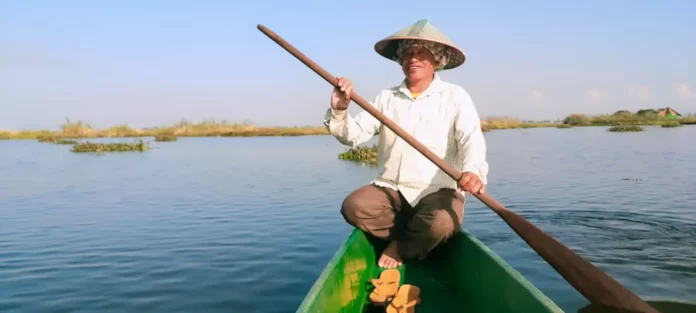In Manipur, concerns over the ecological impact of night fishing with LED lights at Loktak Lake have prompted local fishermen to advocate for a ban on this practice.
The use of LED lights during night fishing has become a prevalent method on Loktak Lake, but it has raised alarms among the fishing community due to its potential consequences on the lake’s delicate ecosystem.
Fishermen argue that the bright LED lights disrupt the natural behavior of fish and other aquatic species, affecting their reproductive cycles and leading to a decline in the overall fish population in Loktak Lake.
Local environmentalists support the fishermen’s plea, emphasizing the need to preserve the biodiversity of Loktak, one of the largest freshwater lakes in Northeast India. The lake is not only a crucial source of livelihood for many fishermen but also a significant ecological hotspot.
Fishermen’s Idea For Night Fishing
The fishermen propose that enforcing a ban on night fishing with LED lights would help restore the balance in Loktak Lake’s ecosystem, safeguarding the interests of both the fishing community and the diverse aquatic life within the lake.
The plea for a ban aligns with the broader global conversation about sustainable fishing practices and the conservation of freshwater ecosystems. The call for responsible fishing methods underscores the interconnectedness of human activities and the delicate balance required to preserve the environment.
Manipur’s authorities are now under pressure to address these concerns and consider regulatory measures to control the use of LED lights in night fishing. Striking a balance between the economic needs of the fishing community and the ecological well-being of Loktak Lake poses a challenge that requires thoughtful consideration and collaborative efforts.
As discussions around the potential ban unfold, the fishing community and environmentalists remain hopeful that measures will be implemented to protect Loktak Lake’s biodiversity. Preserving the delicate balance of this vital waterbody is not just a local concern but resonates with the global commitment to sustainable practices that ensure the well-being of ecosystems and the communities dependent on them.


